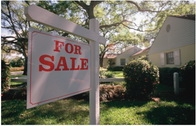Advertisement
Home Values Expected to Jump 5.4 Percent Annually

More than 100 forecasters said they expect the Zillow Home Value Index to end 2013 up an average of 5.4 percent year-over-year, and most expressed some fears the Federal Reserve could be inflating a new housing bubble, according to the latest Zillow Home Price Expectations Survey. The survey of 105 economists, real estate experts and investment and market strategists was sponsored by leading real estate information marketplace Zillow, Inc. and is conducted quarterly by Pulsenomics LLC. Panelists said they expected median U.S. home values to rise to $165,280, on average, by the end of 2013. At the end of 2012, the U.S. Zillow Home Value Index stood at $156,800.
In the last survey, conducted in late February and early March, respondents said they expected average home value growth of just 4.6 percent in 2013. Looking forward, respondents predicted average home value appreciation of 4.4 percent in 2014, up from prior expectations of 4.2 percent.
But while panelists were more bullish on near-term home value appreciation this year and into 2014, their expectations for nationwide home value growth in 2015, 2016 and 2017 were slightly more pessimistic than in prior surveys. On average, panelists said they expect annual home value growth between 3.5 percent and 3.7 percent from 2015 through 2017, down modestly from previously expressed expectations in the 3.6 percent to 3.8 percent range. Cumulatively, survey respondents predicted home values to rise 22.3 percent, on average, through 2017.
"The panel's expectations of near-term home value appreciation remaining above historic norms are consistent with a market struggling to satisfy strong demand from buyers attracted by rock-bottom interest rates and improving economic conditions," said Zillow Chief Economist Dr. Stan Humphries. "But looking further out, that appreciation will have to moderate as interest rates rise, or else homes that seem affordable today – despite rapidly rising values – are going to look very expensive relative to people's incomes as it gets more costly to finance a home. How the Federal Reserve handles the eventual winding down of its policy of quantitative easing will be critical in determining if the current period of rapid appreciation is a benign bounce off the bottom, or a more dangerous bubble being re-inflated."
The most optimistic quartile of panelists predicted a 6.6 percent annual increase in home values in 2013, on average, while the most pessimistic quartile[iii] predicted an average increase of 4.2 percent. Expectations among both the optimists and pessimists were up from prior predictions of 6.1 percent and 3 percent, respectively. Expectations for cumulative home value changes through 2017 ranged from 32.8 percent, on average, among the most optimistic quartile to 12.3 percent among the most pessimistic.
The latest Zillow Home Price Expectations Survey asked the panel if the Federal Reserve's current monetary policy aimed at keeping mortgage interest rates near historic lows risked inflating a new housing bubble. Just 4 percent of respondents said they saw no risk of a new bubble; 48 percent said they saw a little risk; and another 48 percent said there was a moderate to high risk of a new housing bubble forming as a result of current policies.
Under the Dodd-Frank financial reform legislation, banking regulators were asked to define a "qualified residential mortgage" (QRM) that would make that loan exempt from certain risk retention rules also adopted under Dodd-Frank. The panel was also asked if this QRM definition should include a minimum down payment. Among the respondents, most said the QRM should include a minimum down payment requirement.
"Contrary to concerns expressed by certain policymakers, only a small minority of our expert panelists believe that including a minimum down payment requirement in QRM would pose a threat to the housing recovery. The vast majority of respondents – 81 percent – believe that establishing a minimum down payment is a good idea and would ultimately foster a healthier housing market," said Pulsenomics founder, Terry Loebs. "This consensus is consistent with the spirit of the provisional QRM rule drafted by financial regulators, although only about one-third of our panel favors a minimum down payment standard of 20 percent or more."
About the author




